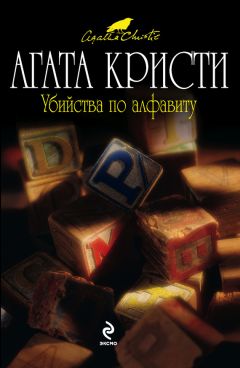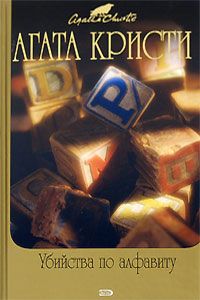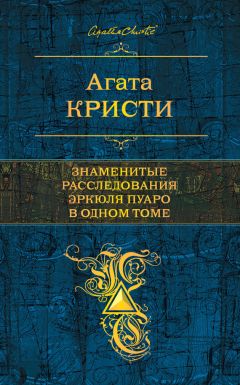Agatha Christie - Английский язык с Агатой Кристи. Убийства по алфавиту
envelope [ˈenvǝlǝʋp], postmark [ˈpǝʋstmɑ:k], shrug [ʃrʌɡ]
I glanced at the envelope. That also was printed.
"Postmarked W.C.1," said Poirot as I turned my attention to the postmark. "Well, what is your opinion?"
I shrugged my shoulders as I handed it back to him.
"Some madman or other, I suppose."
"That is all you have to say?"
"Well — doesn't it sound like a madman to you?"
"Yes, my friend, it does."
His tone was grave (его тон был серьезным; grave — серьезный, веский, важный). I looked at him curiously (я посмотрел на него заинтересованно; curious — любопытный, пытливый; необычный).
"You take this very seriously, Poirot (вы слишком серьезно к этому относитесь: «вы очень серьезно это принимаете», Пуаро)."
"A madman (сумасшедшего), mon ami (фр. мой друг), is to be taken seriously (следует принимать серьезно). A madman is a very dangerous thing (сумасшедший человек очень опасен: «это очень опасное существо»; thing — вещь, предмет; сущность; дело; обстоятельство)."
"Yes, of course (да, конечно), that is true (это правда). I hadn't considered that point (я не рассмотрел эту точку /зрения/ = не подумал об этом, не принял это во внимание). But what I meant was (но, что я имел в виду это), it sounds more like a rather idiotic kind of hoax (это больше похоже на дурацкую шутку: «это больше звучит скорее как идиотский вид розыгрыша»). Perhaps some convivial idiot (возможно, какой-то идиот навеселе) who had had one over the eight (которому одна /рюмка/ после восьми /оказалась лишней/)."
curiously [ˈkjuǝrɪǝslɪ], hoax [hǝʋks], convivial [kǝnˈvɪvɪǝl]
His tone was grave. I looked at him curiously.
"You take this very seriously, Poirot."
"A madman, mon ami, is to be taken seriously. A madman is a very dangerous thing."
"Yes, of course, that is true. I hadn't considered that point. But what I meant was, it sounds more like a rather idiotic kind of hoax. Perhaps some convivial idiot who had had one over the eight."
"Comment (фр. как)? Nine (девять)? Nine what (девять чего)?"
"Nothing (ничего) — just an expression (просто выражение). I meant a fellow (я подразумевал человека; to mean — иметь в виду; подразумевать) who was tight (который напился; tight — тесный; сжатый; раз. пьяный). No, damn it (нет, проклятье: «прокляни это»), a fellow (человека) who had had a spot too much to drink (который принял слишком много: «у которого было больше порций /спиртного/, чем он мог выпить»)."
"Merci, Hastings (благодарю, Гастингс) — the expression 'tight' I am acquainted with it (с выражением «напился» я знаком). As you say (как вы говорите), there may be nothing more to it than that (за этим, возможно, больше ничего нет: «там, возможно, больше ничего в этом, чем это»)."
"But you think there is (но вы думаете, что есть)?" I asked (я спросил), struck by the dissatisfaction of his tone (пораженный недовольством его тона; to strike — бить, ударять; поражать, производить впечатление; to satisfy — удовлетворять; соответствовать).
Poirot shook his head doubtfully (Пуаро с сомнением покачал головой; doubt — сомнение; to shake — трясти/сь/; встряхивать; качать/ся/), but he did not speak (но он /ничего/ не сказал).
tight [taɪt], acquaint [ǝˈkweɪnt], doubtfully [ˈdautfʋlɪ]
"Comment? Nine? Nine what?"
"Nothing — just an expression. I meant a fellow who was tight. No, damn it, a fellow who had had a spot too much to drink."
"Merci, Hastings — the expression 'tight' I am acquainted with it. As you say, there may be nothing more to it than that."
"But you think there is?" I asked, struck by the dissatisfaction of his tone.
Poirot shook his head doubtfully, but he did not speak.
"What have you done about it?" I inquired (что вы предприняли по этому /поводу/? — поинтересовался я; to inquire — осведомляться, справляться, спрашивать, узнавать).
"What can one do (что можно сделать)? I showed it to Japp (я показал его Джеппу). He was of the same opinion as you (он был того же мнения, что и вы) — a stupid hoax (глупая шутка) — that was the expression he used (это то выражение, /которое/ он использовал). They get these things every day at Scotland Yard[2] (они получают такие вещи каждый день в Скотланд-Ярде). I, too, have had my share (я тоже имел /такие на/ свою долю) —"
"But you take this one seriously (но это вы принимаете всерьез)?
Poirot replied slowly (Пуаро медленно ответил). "There is something about that letter, Hastings (там есть что-то в этом письме, Гастингс), that I do not like (что мне не нравится)."
In spite of myself (не смотря на мое /мнение/), his tone impressed me (его тон впечатлил меня). "You think (вы думаете) — what (что)?"
inquire [ɪnkˈwaɪǝ], Scotland Yard [ˈskɔtlǝnd ˈjɑ:d], share [ʃɛǝ]
"What have you done about it?" I inquired.
"What can one do? I showed it to Japp. He was of the same opinion as you — a stupid hoax — that was the expression he used. They get these things every day at Scotland Yard. I, too, have had my share —"
"But you take this one seriously?
Poirot replied slowly. "There is something about that letter, Hastings, that I do not like ."
In spite of myself, his tone impressed me. "You think — what?"
He shook his head (он покачал головой; to shake), and picking up the letter (и подобрав письмо), put it away again in the desk (снова убрал его в стол; to put — класть).
"If you really take it seriously (если вы действительно принимаете его всерьез), can't you do something (/разве/ вы не можете ничего сделать)?" I asked (спросил я). "As always (как обычно), the man of action (человек действия)! But what is there to do (но что здесь поделать)? The county police have seen the letter (полиция графства уже видела письмо; to see) but they, too, do not take it seriously (но они тоже не принимают его всерьез). There are no fingerprints on it (на нем нет отпечатков пальцев). There are no local clues (там нет прямых указаний; local — местный, локальный; clue — клубок, моток; ключ /к разгадке чего-л./; улика; ход мыслей) as to the possible writer (на возможного автора /письма/: «писателя»)."
county [ˈkaʋntɪ], fingerprint [ˈfɪŋɡǝprɪnt], clue [klu:]
He shook his head, and picking up the letter, put it away again in the desk.
"If you really take it seriously, can't you do something?" I asked. "As always, the man of action! But what is there to do? The county police have seen the letter but they, too, do not take it seriously. There are no fingerprints on it. There are no local clues as to the possible writer."
"In fact (фактически) there is only your own instinct (это только ваш инстинкт)?"
"Not instinct, Hastings (не инстинкт, Гастингс). Instinct is a bad word (инстинкт — это неподходящее слово: «плохое слово»). It is my knowledge (это мои знания) — my experience (мой опыт) — that tells me (который говорит мне) that something about that letter is wrong (что с этим письмом что-то не так) — "
He gesticulated (он стал жестикулировать) as words failed him (когда слова покинули его), then shook his head again (затем снова покачал головой).
"I may be making the mountain out of the anthill (возможно, я делаю из мухи слона: «гору из муравейника»). In any case (в любом случае) there is nothing to be done but wait (ничего не остается делать, только ждать)."




